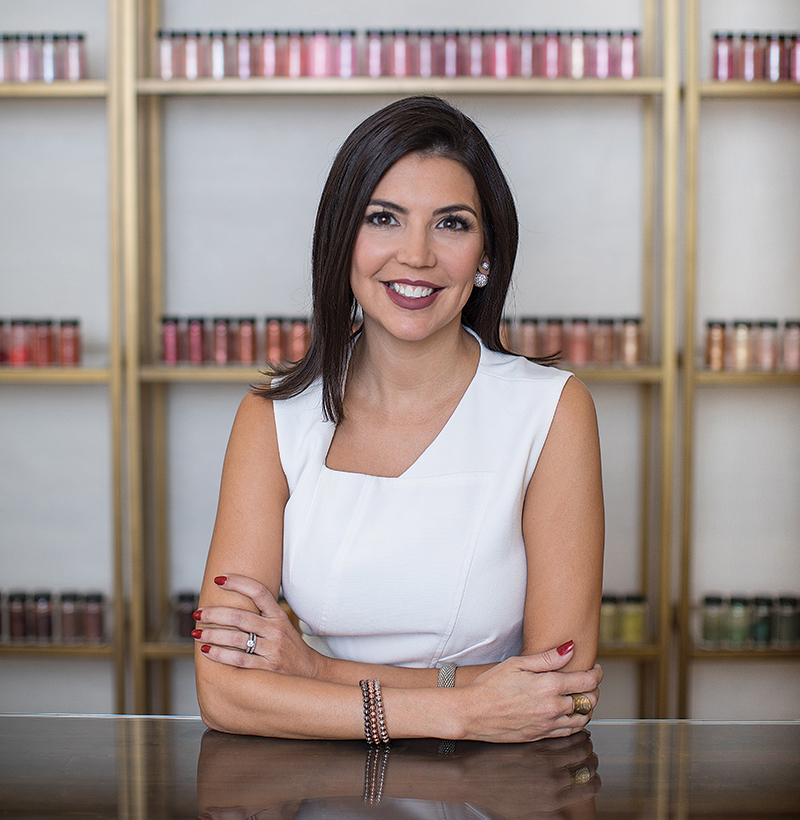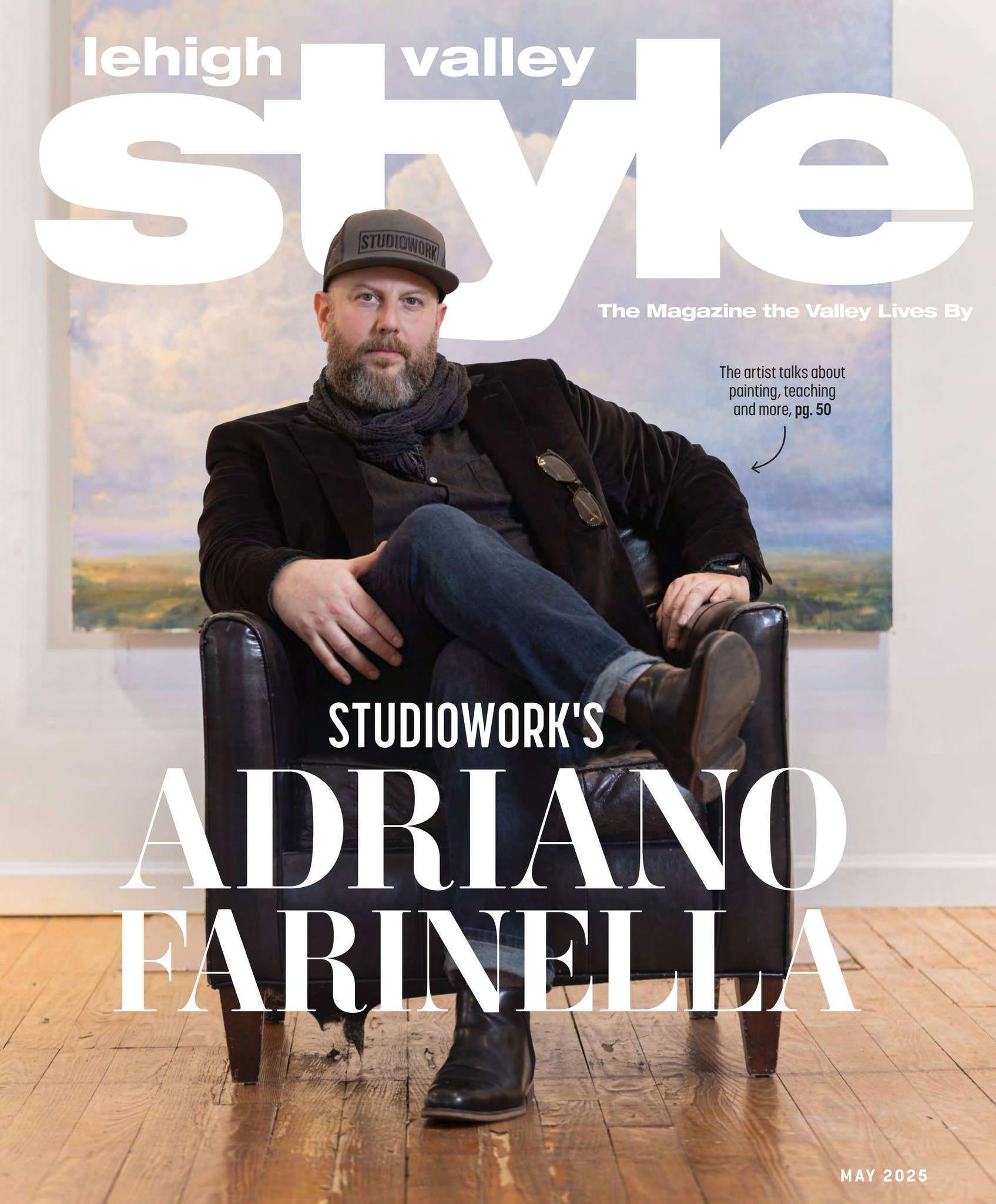While the country is reeling from a massive hand sanitizer shortage, two different veteran-owned Valley businesses have stepped up to the plate with crafting their own. Read how a local distillery and an organic cosmetics company are using their knowledge and resources to do some good.
Eight Oaks Farm Distillery
When we asked Chad Butters, founder of Eight Oaks Farm Distillery, the veteran-owned, family-run, farm-grown craft distillery in New Tripoli, when it first occurred to him to start making hand sanitizer, his answer shocked us. “Probably a little too late, honestly,” Butters responded. His incredible work has already been highlighted by People, Time, Business Insider, CNN and more. We have no doubt that his efforts were right on time.
“Saturday morning it hit me when reading an article about people hoarding sanitizer and then charging $323 per ounce,” he says. “That is just not acceptable in times like these. We wanted to be the antidote to that, and we got to work on it on Sunday.”
Butters' team spent Monday and Tuesday getting their supply chain in order. They are now working to get product to those who need it most by the end of this week. “It is very much just brute force right now,” he says. “We are piecing together all the parts and just moving out as quickly as we can. We know all about how to make the active ingredient of high-proof alcohol. The rest of the production is simply mixing in the inactive ingredients post distillation and then getting it in a bottle.”
It wasn't until word got out that they were doing this that Butters really saw the need for it. They've received urgent requests from non-profits, emergency management personnel, EMS, the healthcare industry and companies that have all been deemed as “mission critical” by the federal government. Eight Oaks already works with three non-profit partners every day—the Cancer Support Community (CSC), Tails of Valor and the Farmer Veteran Coalition. “Of course, CSC has a client base that is immune compromised and at risk, so our number one goal is to get this in their hands.”
Possibly the most noteworthy part of Butters' work is that their hand sanitizer is free or pay-what-you-can. “The entire point is to get this to people that need it,” says Butters. “In these difficult times, there very well may be people that simply can't afford it.” Butters is confident that the community will donate what they can to support this project, knowing that their donations will help get this product into people's hands that need it.
And Butters says the response has been amazing. “We just started accepting donations on our website and people are making donations from around the country already,” he says. “These people are not getting product, they just want to be part of the solution.” If Eight Oaks receives donations above and beyond what it will take to keep the project going, the money will go directly and evenly to their three non-profit partners.
Once they've provided enough product to their non-profit partners and those in need, Eight Oaks will have the hand sanitizer available at the distillery, as well as at their usual market locations.
Soon, Eight Oaks' spirits may be available for delivery, but right now, 100 percent of the distillery's resources are dedicated to the goal of producing 10,000 bottles of hand sanitizer per week. “That will be driven by first meeting the demand for the hand sanitizer in our community,” he says. “The hand sanitizer is taking every ounce of our energy, so thank you for your patience on that.”
For Butters, it really comes down to doing what is right. “Despite what we sometimes see, I am convinced that people are generally good,” he says. “I see it in our community every day. In difficult times we will come together and do what we can to get everyone through to better days.”

Taylor Made Polish
For Vanessa Ungvarsky, owner/creator of Easton's Taylor Made Polish, the realization came to her when she heard about a medical professional that had attempted to purchase hand sanitizer at a larger retailer, but because other shoppers were hoarding, she wasn't able to buy a single bottle for herself. “My heart sank and I wondered what I had on hand,” she says. “I knew the shortage would be bigger, so we scoured our basement inventory for bottles, pulled together our ingredients from other product lines and made as much sanitizer as we could, as quickly as we could.”
Although they are selling the product at a cost, Ungvarsky say that they will likely take a loss because the ingredients are premium. Even so, she says: “We quickly realized this might be the only opportunity to fill a need and also offer opportunities to keep our staff working.”
A veteran of the Air Force, Ungvarsky says her military training and life experience has made all the difference in her work at Taylor Made Polish. “It's our first instinct, and we are able to adapt so quickly,” she says. “We want to lead from the front, get through the change quickly and help others through it too.”
The hand sanitizer is available in one-ounce, two-ounce and three-ounce bottles, ranging from $4.50 to $8. Taylor Made is offering curbside pick-up to customers. As for supply, Ungvarsky says that they sold out of some bottle sizes pretty quickly, but they received another bottle shipment on Monday and are constantly restocking. “We anticipate continuing with hand sanitizer for the foreseeable future,” she says.
Of course, as with all of their products, Taylor Made's hand sanitizer is natural and organic. “Limiting as many toxins as possible is always ideal when dealing with our health and our bodies,” she says. “So many external and environmental factors are introduced in the air, household products, our food, etc. Over time, the toxins can build up in our bodies and cause any number of health issues.” She says that every effort helps in minimizing these toxins, noting that simple and clean is always better.
Should readers be trying this at home? Ungvarsky relates the production process to the hit television show Breaking Bad. “There's an unpleasant scene when someone used the wrong container for a certain type of liquid,” she says. “We are conservative with our methods so we can ensure safety. It's key that you source the right container, have the right potency and package it in a way that's easily dispensable and safe.”
Ungvarsky notes that while heavy alcohol use on the skin can cause intense dryness, her formula uses Aloe vera and vegan glycerin, which makes it extra hydrating. “If there is extensive use, there will also be some goodness to combat the extra dryness,” she says. When you wash your hands, she recommends doing so thoroughly, followed by a heavy application of organic oil—body oil, cuticle oil, or whatever is on hand. “Frequent and regular moisturizing will help restore stripped, dry skin.”
While Ungvarsky says that she knows hand sanitizer alone won't save us, she says it's a critical component when handwashing isn't available.















